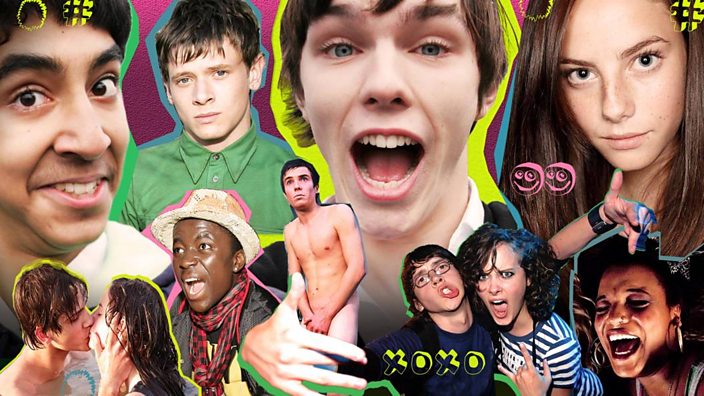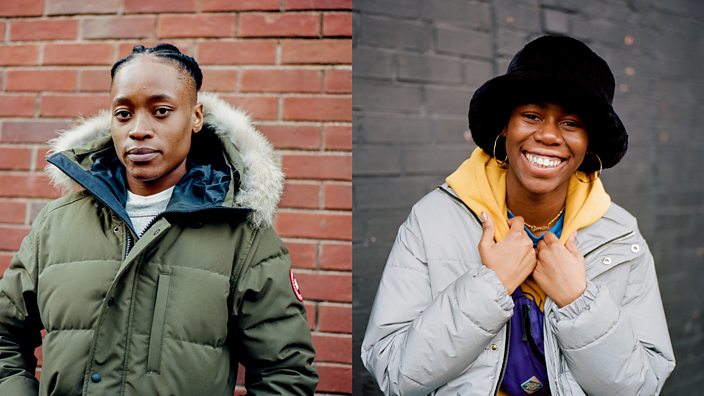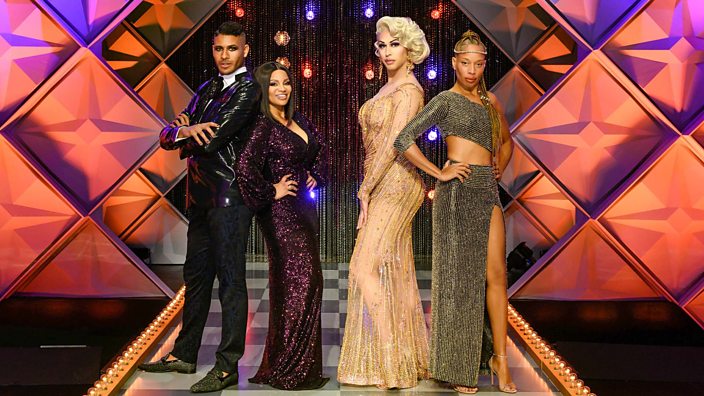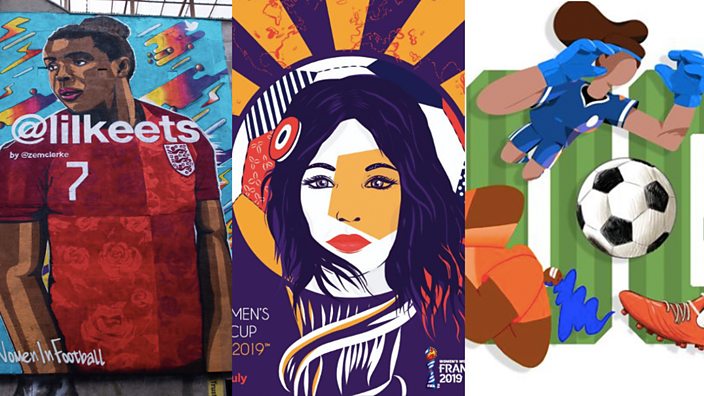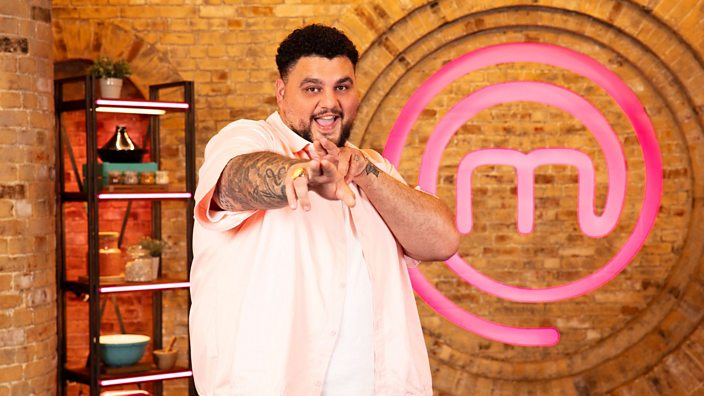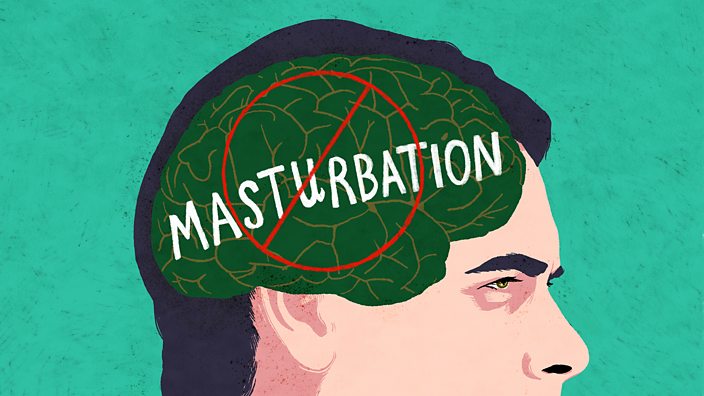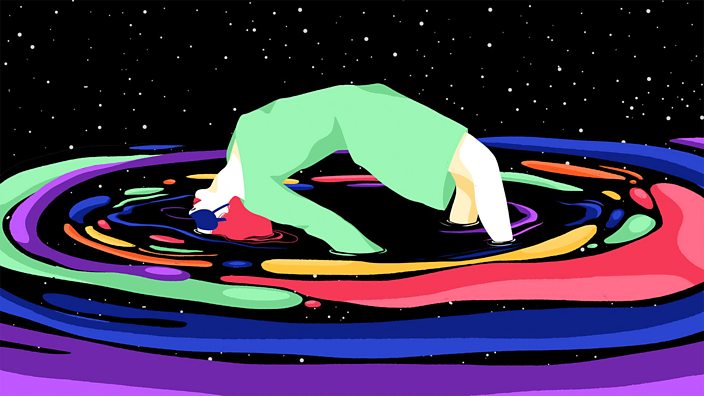What does womanhood mean in 2017? A new drama from Skins writer Jess Brittain, 27, confronts this question head on.
A six-part thriller, Clique follows two girls in their first year at a university in Edinburgh, navigating a world that seems increasingly hostile to them.
“I think it is much harder to be a young woman now,” said Brittain when we spoke on the phone during Trump’s first week in office. His presidential campaign, which came during the writing of the show, “made things more real” for her, she told me.
On a personal level, this is something I can understand. Trump boasting about grabbing women “by the pussy,” abortion rights being rolled back across the world, and revenge porn on the rise– it doesn’t feel like a nice time to be a young woman.
I’m 25, and I have a pretty confident outlook on life, but I’m losing sleep to anxiety about world politics. For women younger than me, who are still finding their place in the world, it can be an even bigger challenge.
While many of the issues tackled in Skins remain relevant - drugs, teen pregnancy, mental health - Brittain feels like much has changed in the 10 years since the show first aired. We talked about Cassie, a main character in the early days of Skins who struggled with poor mental health and an eating disorder. How, in an age where we're more obsessed with image than ever – where, as Brittain puts it, “you’re expected to present a specific self to the world on social media” - would someone like Cassie cope?
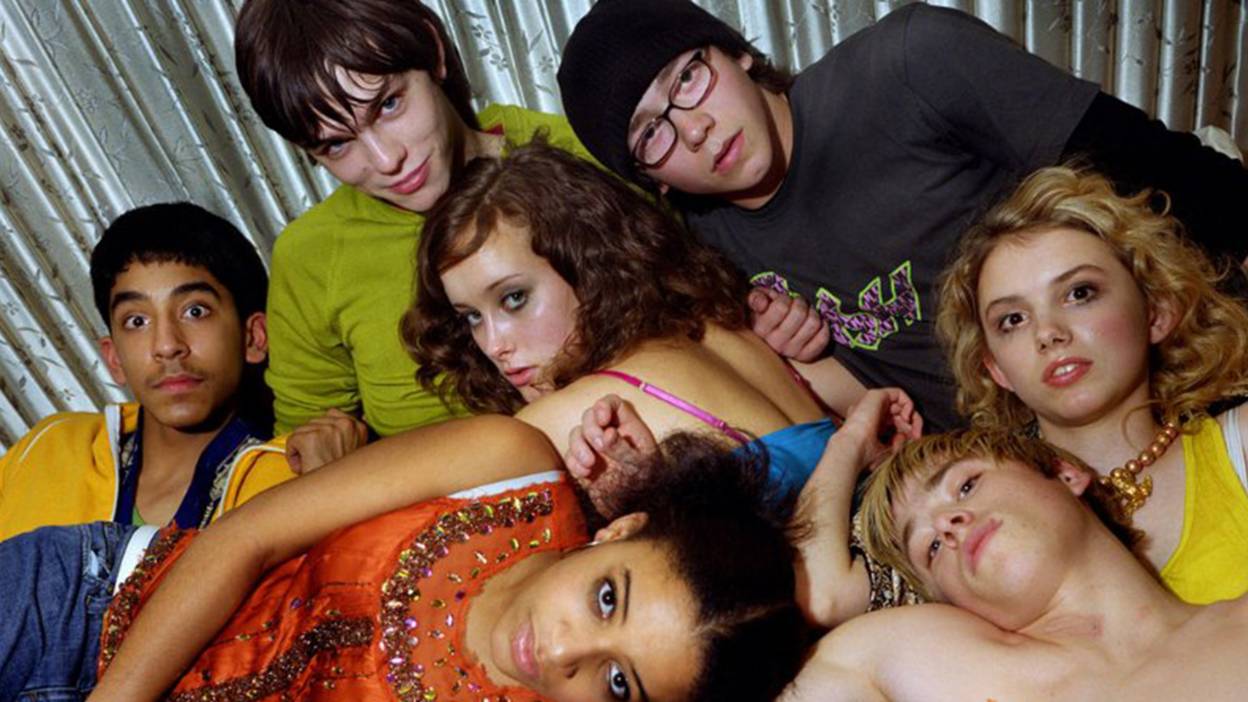 Channel 4
Channel 4
Clique’s main characters, Holly and Georgia, struggle with fear, insecurity and conflict. Holly, in particular, is less confident than the colourful characters of Skins: less sure of herself in the world, less willing to take risks.
And, importantly, Holly and Georgia are unable to hide. When Brittain started university, in 2007, the first iPhone had only just been released, and social media was in its infancy. Brittain could shut the world off when she needed to - something younger friends have told her is now “completely gone”.
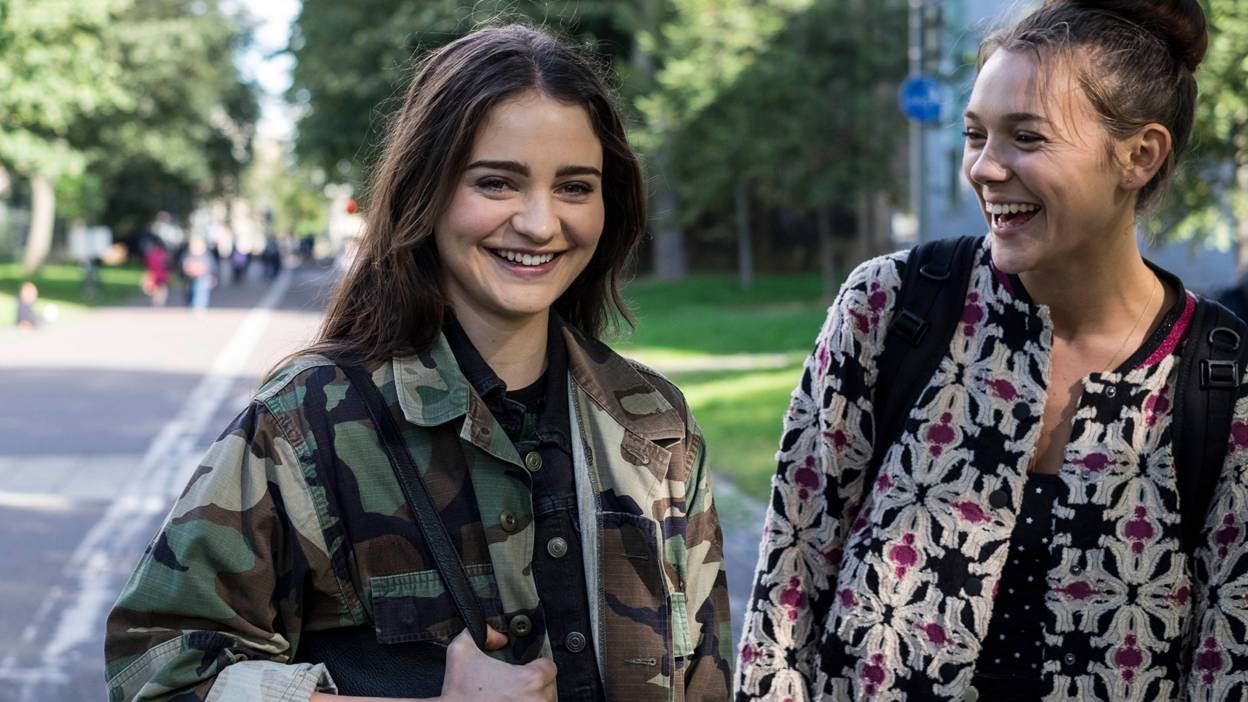 BBC Three
BBC Three
“ Clique is very preoccupied with this,” said Brittain. “The problem of social media being a very strict, very judgemental world. I heard from women who say they’re incredibly careful about what they say and where they say it; there are girls who told me that when they watch or read something they go on Twitter to check what the general feel is before they decide what to say.”
“They fear missing something, fear offending someone, worry about identifying themselves as someone who isn’t thinking in the ‘right’ way or noticing the ‘right’ things.”
Clique was partly based on Brittain’s own experiences of feeling alienated and under pressure at Leeds University - and how this differed so starkly from what she had expected.
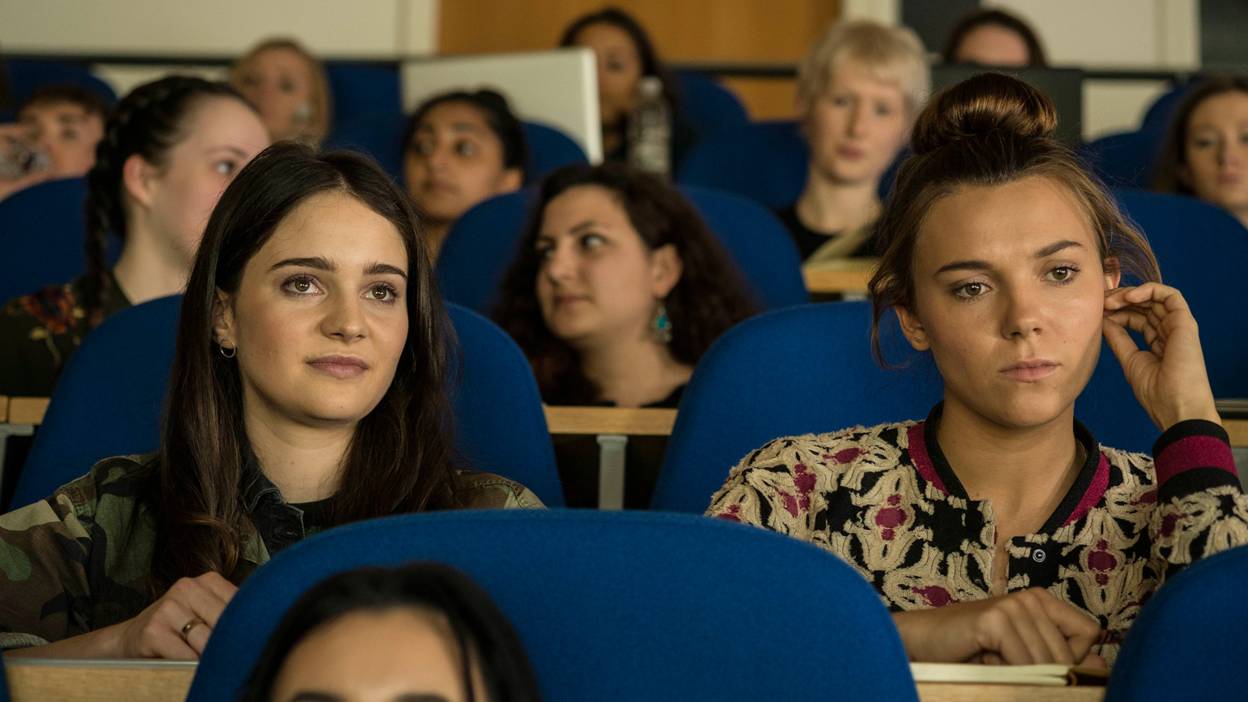 BBC Three
BBC Three
“I did not have a fun time at university,” she told me. “It was a very conflicted time for me. I didn’t make my 'friends for life' there, or have the 'best years of my life' - which is obviously something that you just expect to happen. So it ends up feeling like this shameful secret if you don’t experience it.”
“My self-esteem plummeted," she said. "I was convinced I was an outsider even though, now I think about it, people did make an effort to include me."
She has been with her boyfriend since she was 18 and, she said, “I think that might have contributed to my ‘outsiderness’ - you’re supposed to break up with that boy after the first term, right?”
Plus, “I'd taken drugs and done my risk-taking. I arrived at uni a little bit done with it. Which obviously isn't really the point at freshers.”
Brittain also notes that all the “messages about concentrating on your ambitions” didn’t help. “I felt under pressure to have everything sorted.”
Her time at university, though stressful, was “before the incredible upswing in career pressure that young people have now". It was only when she spoke to young people while writing Clique that she realised just “how intense and insecurity-making university is now. You’re just expected to have your s**t together immediately.”
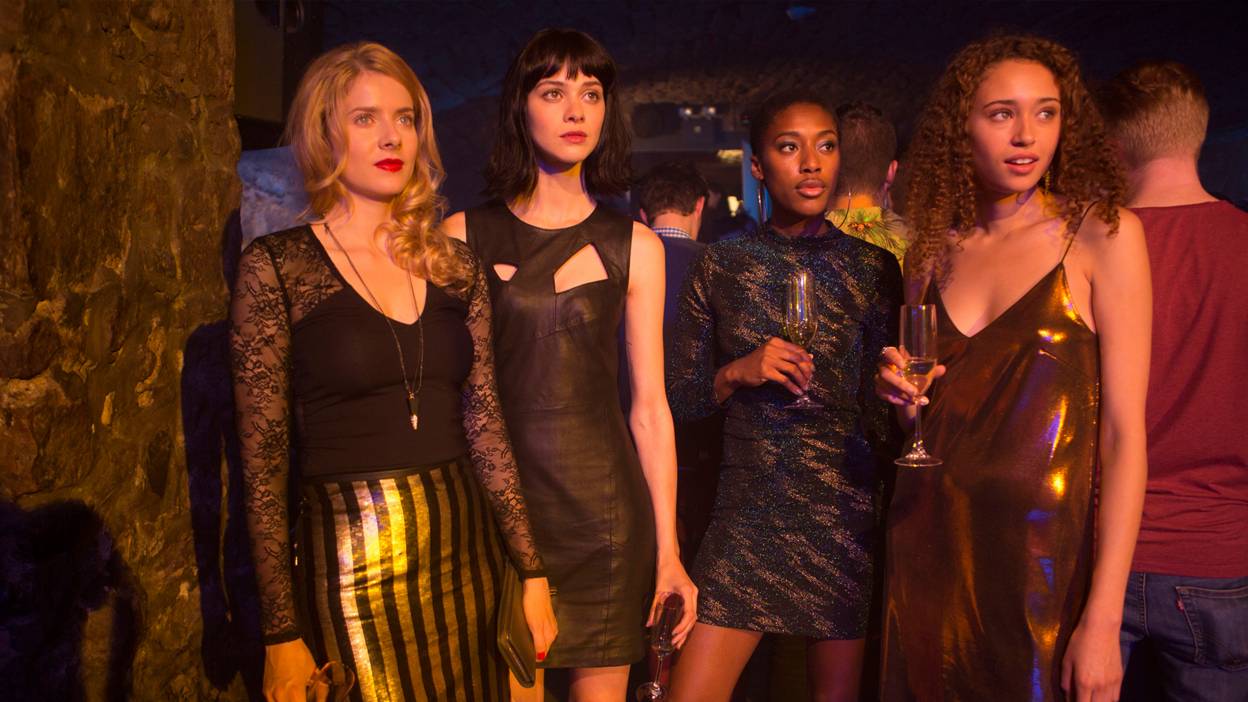 BBC Three
BBC Three
The pressure can be even more intense when people already feel like outsiders. At some universities, elitism can leave young students from less privileged backgrounds feeling particularly at sea.
Holly and Georgia befriend a group of intimidatingly glamorous girls in Clique - “women who seem to have it all worked out, who know what they’re doing and where they’re going,” said Brittain. She was interested in exploring what happens to girls like Holly and Georgia - “girls who haven’t been brought up with a privileged education, who don’t know how to converse or be confident or how to work a room, and might not know what they want to do, and who don’t have the money and backing for it either.”
“What happens when you throw women who aren’t quite grown up yet into an incredibly grown-up world and expect them to cope with it?”
Clique isn’t intended to be a reflection of typical student life: it is a tense thriller, with Holly and Georgia becoming embroiled in a shady internship scheme operated by ruthless, and mysterious, individuals. But the themes, Brittain said, apply broadly. “At the heart of it is female friendship. Feeling like an outsider, feeling insecure, feeling like you don’t know who you are – those are universal things.”
One great benefit of social media, she said, is that, “women today have a fantastic opportunity to speak out, to have discussions, connect, get challenged, have their minds changed.”
They are also often on the receiving end of outrageously misogynistic trolling. Brittain acknowledges this. But, she said, “we need to push back and allow women to be vocal online - as in life.”
